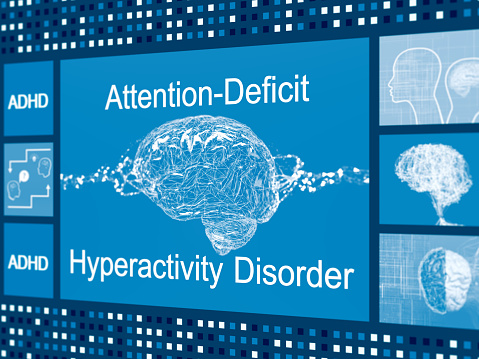What You Eat Determines Who You Are Eat a healthy and nutritious diet

In today’s fast-paced world, where convenience and instant gratification are often prioritized, maintaining a healthy lifestyle has become a conscious choice for individuals seeking to improve their overall well-being. A healthy lifestyle is a state that is free from every disease, and to achieve that, it is essential to follow a nutritious diet. Following a balanced diet is the easiest and the guaranteed way to ensure good health.
What is a balanced diet?
- A balanced diet is a diet that helps the body to function properly while fulfilling the daily nutritional requirements of the body.
- A balanced diet meets an individual’s daily nutrient requirement of calories, vitamins, proteins, and minerals. A healthy balanced diet also offers bioactive phytochemicals like dietary fiber, antioxidants, and nutraceuticals with positive health advantages.
- A balanced diet supplies the body with essential nutrients that are required to work effectively. Without balanced nutrition, the body is more prone to disease, infection, fatigue, and low performance.
Eating a healthy diet helps you to fight various diseases by improving your health. When you follow a balanced nutrition diet, you have more energy, and you feel good about yourself. So, when you are following a balanced diet, most of your calorie requirements must come from the following
1. Vegetables
Nutrition in fruits and vegetables cannot be overstated, and nutritionists across the globe emphasize the phrase ‘follow the rainbow’, which refers to incorporating diverse colors of fruits and vegetables in your diet to reap numerous health benefits. So, include vegetables such as leafy greens, starchy vegetables, legumes like beans and peas, red and orange vegetables, and others like eggplant.
2. Fruits
For maintaining a balanced diet, fresh fruits are always healthy and advisable to have instead of canned or frozen fruits.
A nutritious diet includes whole grains more than refined grains. Eating whole grains like quinoa, oats, brown rice, barley, and buckwheat lowers the risk of diseases such as diabetes, heart disease, and high blood pressure.
Proteins are important for immune functions such as cell development. Lean beef and pork, chicken, fish, beans, peas, lentils, and legumes are great sources of protein. Protein powder, chia seeds, tofu, beans, and peanut butter are plant-based proteins, which, if included in the diet nutrition plan, can help to achieve the daily requirement of protein intake.
Low-fat milk, yogurt, cottage cheese, and soy milk are dairy products that complete and maintain a balanced and nutritious diet.
Achieving a balanced diet is undoubtedly important for maintaining good health, but it is equally crucial to develop healthy eating practices. Incorporating the following habits into your routine can significantly contribute to your overall well-being:
1. Eat in smaller portions
Trick your brain into perceiving larger portions by using smaller bowls or plates. This optical illusion can help you feel satisfied with less food, preventing overeating and promoting portion control.
2. Take time to eat
The primary aim of eating meals is to nourish our bodies. So, instead of rushing through your meals, dedicate enough time to nourish your body. Eating mindfully and savoring each bite leads to better consumption of nutrients. By consuming the right food, we provide our bodies with the fuel to sustain life, promote optimal health, and enable our bodies to perform their best.
3. Cut down on unhealthy snacks
Opt for healthier alternatives to curb unnecessary snacking. Restrict high-calorie, sugary, or processed snacks and replace them with nutritious bite-sized options like fresh fruits, raw vegetables, or a handful of nuts. These choices provide essential nutrients and can help regulate your appetite.
4. Curb emotional eating
Avoid using food as a coping mechanism for stress, sadness, or anxiety. Emotional eating can result in consuming more calories which leads to weight gain. Instead, explore healthier ways to deal with negative emotions, such as engaging in physical activity, practicing mindfulness, or meditation.
Maintaining an active lifestyle is pivotal for achieving and sustaining a healthy lifestyle. Engaging in exercise and staying active helps to improve heart health, strengthen muscles and bones, and enhance overall physical fitness. Start with physical activities that you enjoy, such as dancing and cycling, and follow them consistently. By maintaining an active lifestyle, you can reap the amazing physical, mental, and emotional benefits that contribute to a healthy and fulfilling life. A healthy and nutritious diet forms the foundation for a vibrant and fulfilling life. Following a healthy and nutritious diet plan yields a multitude of positive results that significantly impact both our physical and mental well-being.
When you focus on a balanced diet that is rich in nutrients whilst following essential tips on diet and nutrition, your immune system becomes resilient, the likelihood of falling ill decreases, and your overall health improves. Irrespective of the age group you belong to, it is imperative to create and follow a diet nutrition plan to make informed choices about what to consume daily to maintain optimal health. Ultimately, what we eat determines who we are, and by choosing to nourish our bodies with a healthy diet and nutrition, we pave the way for a vibrant, resilient, and fulfilling life.



